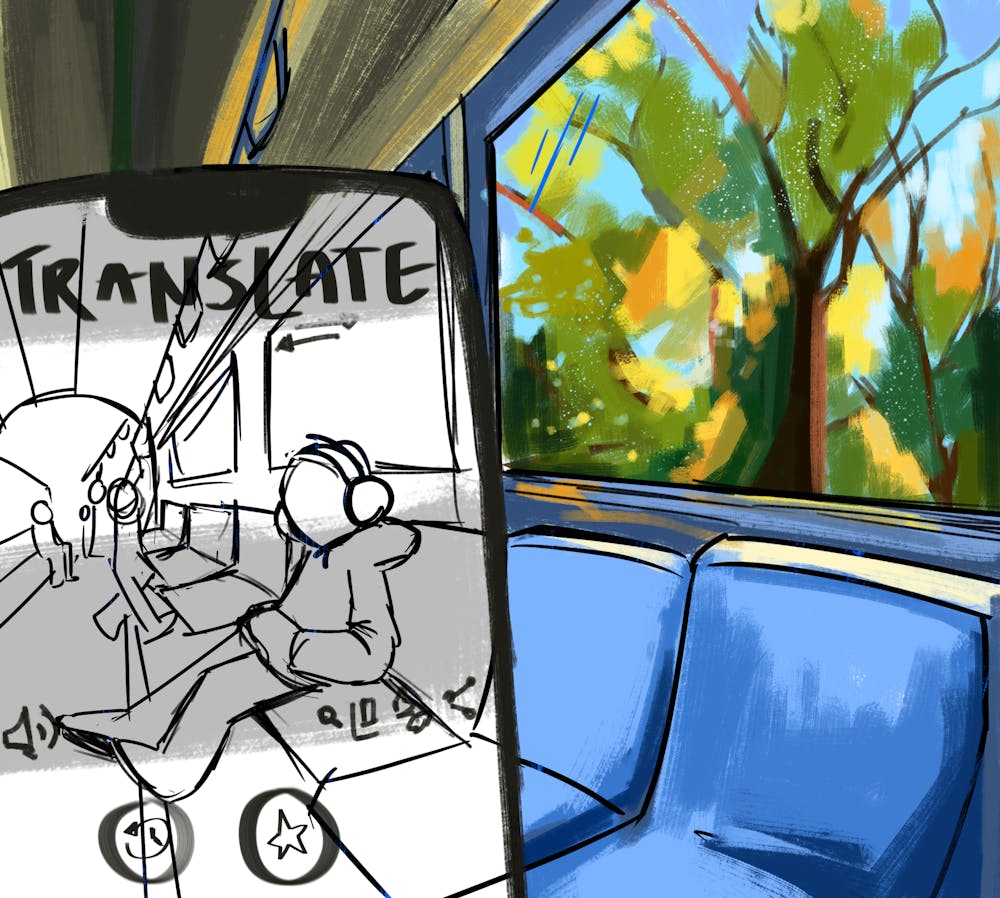
The bus ride to the med campus will never cease to amaze me. I love seeing the city shift with the seasons, passing through different neighborhoods and watching new parts of town fly by outside the window. There’s a word for this, and it’s on the tip of my tongue... ugh, what is it? In Spanish, the term would be recorriendo la ciudad.
If you look up recorrer online, Google Translate will probably think you’re speaking Portuguese and try to translate it to “resort” (not even close). The Cambridge Dictionary, however, will tell you that its translation in English is “to travel through.” Though that translation does match the word’s definition, it doesn’t do the term justice.
If you break the word “recorrer” into its components, you can see “re” and “correr” (to run). In Spanish, we use the prefix “re” as “very.” For example, estoy refeliz would mean the same thing as estoy super feliz: I’m super happy. In my mind, the act of “recorriendo” carries an element of excitement as you literally run around an area — exactly what the JHMI rides represent to me.
In the previous paragraph, I introduced two Spanish-isms (there is probably a technical term for this phenomenon, but I like this name). These are two entire concepts that can be found in one language but — for example — not in English. We do not have one word for “recorrer” in English, and we also don’t have a prefix for “extremely” that we can tack on other words (just as we lack gendered nouns and 16 — yes, 16 — verb tenses for teachers to make us conjugate in school).
Growing up multilingual, I encountered quite a few of these “isms” in my different languages. For instance, in Portuguese, you wouldn’t say, “I miss her.” Instead, you would say: estou com saudades dela. I put the English saying into Google Translate which suggested that I use, eu sinto falta dela. This literally translates to something along the lines of: “I feel her lack of presence.” Saudade has no direct English translation, but it represents the melancholy emptiness and longing you feel when you miss someone — that lack of presence.
On one of my recent JHMI rides, I sat next to a postdoctoral researcher from Hong Kong. She asked me for directions around the hospital and soon after we started chatting, our conversation shifted to our different languages and the similarities they share. She brought up that in Cantonese there is a word similar to “destiny” that describes the fate that two people happen to meet whether in a friendship, professional relationship or romantic sense.
I found the concept of jyun fan (yuanfen in Mandarin) beautiful. After reading a bit more about the word online, I learned that it has roots in Buddhism and describes a phenomenon similar to karma, where two people meeting “by chance” can lead to a longer-term relationship. It seems to be used as existing “between people,” where you share a lot of it with someone you grew a strong relationship with after meeting circumstantially. After the bus ride, she and I parted ways, though I couldn’t help but wonder about the jyun fan between us, and what significance that interaction held.
A few days later, I am still thinking about these “isms.” Growing up, I put a lot of thought into identifying concepts that I could describe in some of my languages and not others, but I rarely considered what ideas were present in the languages I did not speak. This has planted a little seed of curiosity in my head (more specifically, on my “tongue”) about what descriptions can be adopted and adapted from other languages.
A little more thought and another quick web search revealed words like chutzpah and mitdenken — two terms we cannot directly translate to English. Especially with today’s globalization and ever-increasing time-space compression, what other words can we pick up from different tongues to better describe our world? To discover them, our best option is to interact — with new languages, new cultures and new people. This interaction is often intimidating: It involves overcoming cultural stigmas and fears of “the other.” However, it can lead to wonderful new ideas and even words to describe things we all experience. After all, we are all people with many of the same feelings, challenges and joys.
Sara Kaufman is a sophomore from Fort Lauderdale, Fla. majoring in Biomedical Engineering. Her column focuses on the experiences she has had and lessons she has learned outside the classroom.





